I will defend press freedom but not allow advocacy of Hong Kong independence, city leader Carrie Lam says amid row over visa for British Financial Times journalist
Chief executive dismisses as ‘pure speculation’ suggestion Victor Mallet was rejected over his role in talk given by separatist leader
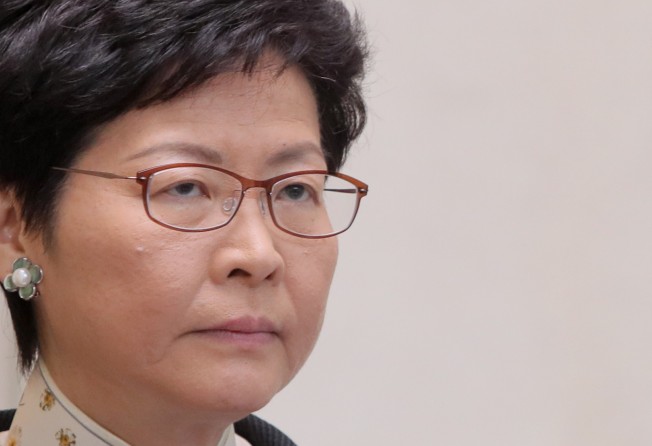
Hong Kong’s leader on Tuesday promised to defend press freedom but warned she would not tolerate independence advocacy as her administration continued to take flak over its refusal to renew a British journalist’s work visa.
In her first comments on the controversy that erupted last week, Chief Executive Carrie Lam Cheng Yuet-ngor dismissed as “pure speculation” the widespread assumption that the refusal was related to Victor Mallet’s involvement in a talk featuring an activist calling for the separation of Hong Kong from China.
The Financial Times issued a statement on Tuesday saying it would appeal against the Immigration Department’s decision “in the absence of an explanation from the Hong Kong authorities”.
Under the Immigration Ordinance, an appeal can be taken to the chief executive and her cabinet, the Executive Council, who can “confirm, vary or reverse” the decision.
However, lodging an appeal does not give Mallet the right to remain in the city, which could mean the veteran journalist would have to leave before Sunday.
As the uproar has grown, voices have spoken up around the globe against the decision. In a rare move on Tuesday, Britain's Foreign Secretary Jeremy Hunt branded the incident “politically motivated” and called on the Hong Kong government to reconsider its decision to reject Mallet's visa renewal application.
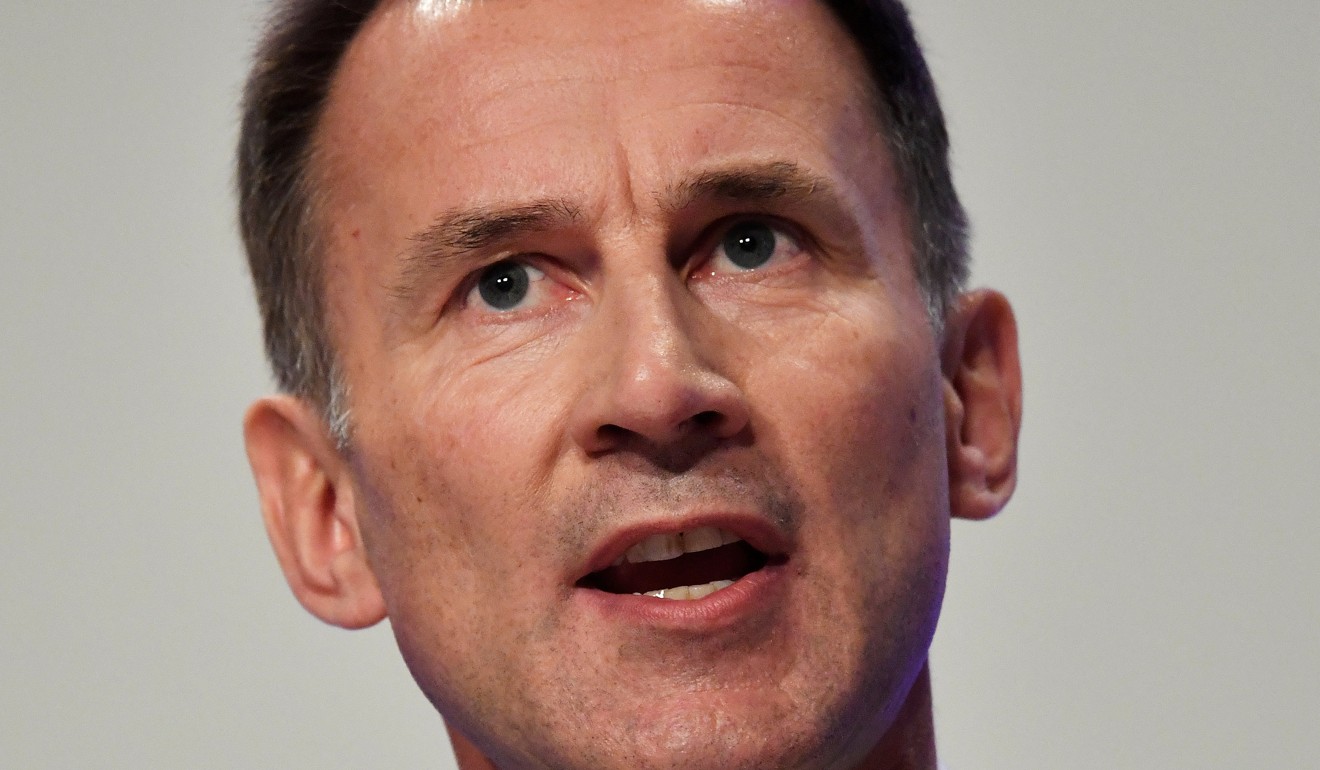
“In the absence of an explanation from the authorities we can only conclude that this move is politically motivated,” Hunt said. “I urge the Hong Kong authorities to reconsider this decision.”
Hunt went on to say that the incident “undermines Hong Kong’s freedom of speech and freedom of the press” and “increases the pressure on the ‘One Country, Two Systems’ framework”, and that he remained “very concerned” about the “unprecedented” incident.
It was revealed last Friday that the Immigration Department had rejected the visa renewal application for Mallet, Asia news editor at the London-based Financial Times. He was given a seven-day visitor’s visa upon his return to Hong Kong from an overseas trip on Sunday.
A day after the American Chamber of Commerce issued a strongly worded statement warning the visa rejection had sent a “worrying signal”, the Australian consulate in Hong Kong said it was “taking a close interest”.
“This matter has contributed to a growing interest in the standing of Hong Kong, which Australians use as our largest regional business centre because of its protection of media freedom, as well as the rule of law, transparency and independence of the judiciary,” a consulate spokesman said.
“Media freedoms are fundamental to the functioning and vitality of Hong Kong … and the culture of accountability.”
Lam refused to clarify if Mallet’s visa rejection was linked to his role as acting president of the Foreign Correspondents’ Club, where he chaired a pro-independence talk in August by Andy Chan Ho-tin, convenor of the now banned separatist Hong Kong National Party (HKNP), despite strong objections from local officials and Beijing.
She said she would “never disclose” details of, or “respond to speculation” on, individual cases.
But making a “general response”, she said: “One of the issues is Hong Kong independence. The other is freedom of the press … The government will not tolerate advocacy of Hong Kong independence, which threatens national security, territorial integrity and development interests.”
Asked why Mallet was denied a work visa renewal for hosting the talk, Lam replied: “What you said is pure speculation … as far as entry and exit matters, these are matters within Hong Kong’s autonomy under ‘one country, two systems’.”
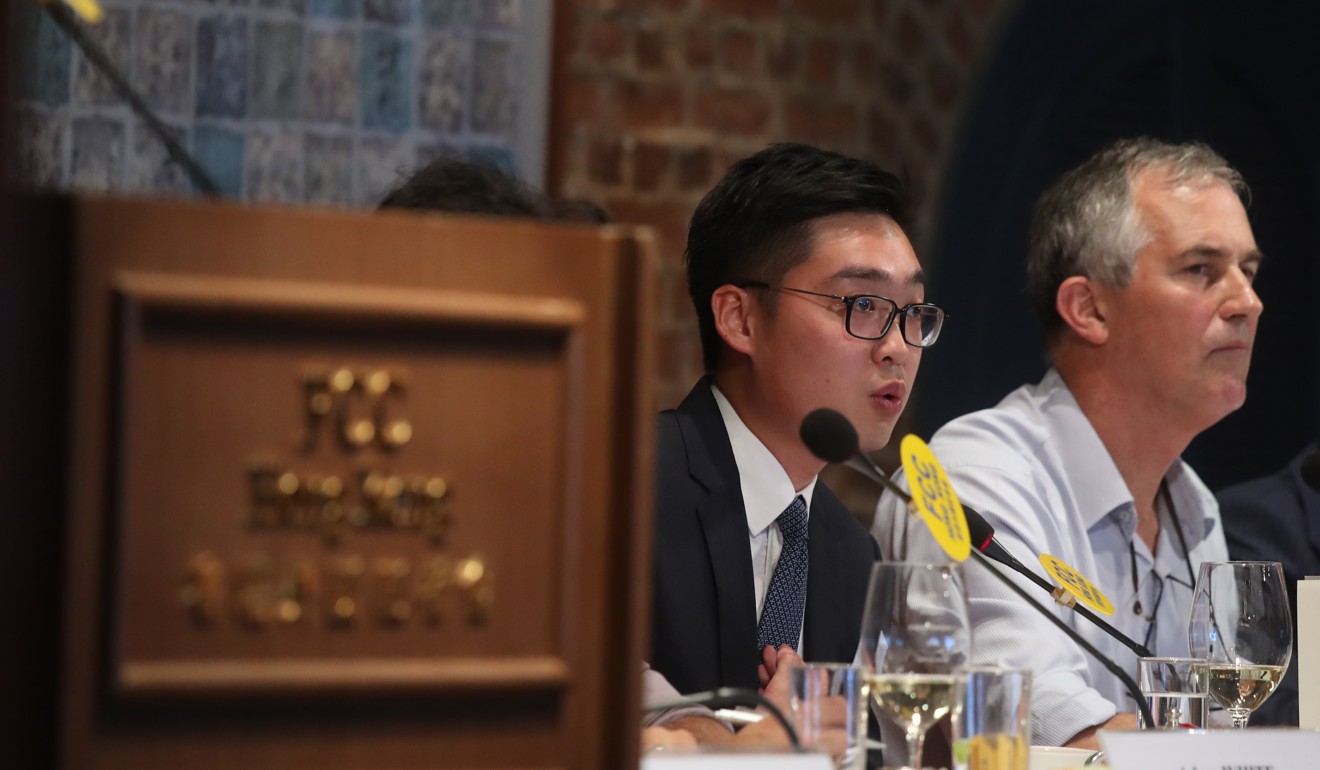
As a special administrative region in China, Hong Kong is guaranteed a high degree of autonomy under the one country, two systems policy.
“In every individual case, the director of immigration will act in accordance with the law,” Lam said. “As a rule ... the Immigration Department will not disclose the individual circumstances of the case.” She would make no exception in this case, she said.
The chief executive would not explain how journalists could deal with the issue of Hong Kong independence without landing in trouble with the authorities.
“I can’t tell you exactly what journalists should say, or act, or interview, but I can assure you … freedom of expression, freedom of reporting, are core values in Hong Kong,” she said.
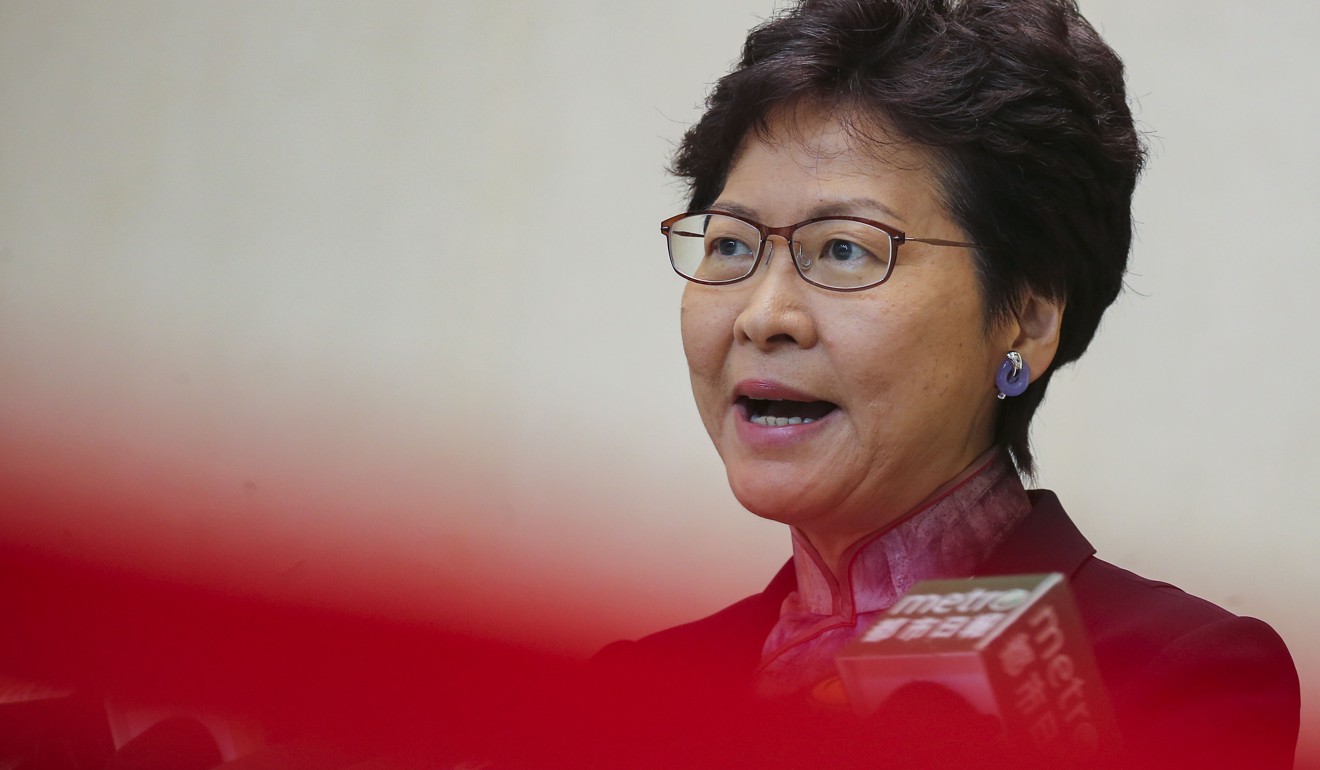
“As the chief executive, I and the government will safeguard all these rights, as enshrined in the Basic Law.”
In a related development, opposition lawmakers announced they would table a motion at a Legislative Council meeting on October 24 to summon Lam, security minister John Lee Ka-chiu or immigration director Erick Tsang Kwok-wai to “give evidence, explain and provide any relevant documents” relating to the visa refusal.
Lawmaker Claudia Mo Man-ching, convenor of the pan-democratic camp’s meetings, said Lam had failed to explain why she would not disclose details of the case.
“We have become the focus of an international joke,” Mo said. “Carrie Lam [shouldn’t] think she can keep giving out glib remarks, clever talk, and … get away with it.”
But Starry Lee Wai-king, chairwoman of the pro-establishment Democratic Alliance for the Betterment and Progress of Hong Kong, said her party – the biggest in Legco – would not back the “absurd” motion.
She said the government should not be pressured into explaining individual cases.
“We urge various sectors from society to stop pressuring the government,” she said.
Democratic Party lawmaker Ted Hui Chi-fung said he would request an adjournment debate at the Legco meeting on Wednesday, when Lam rolled out her annual policy address.
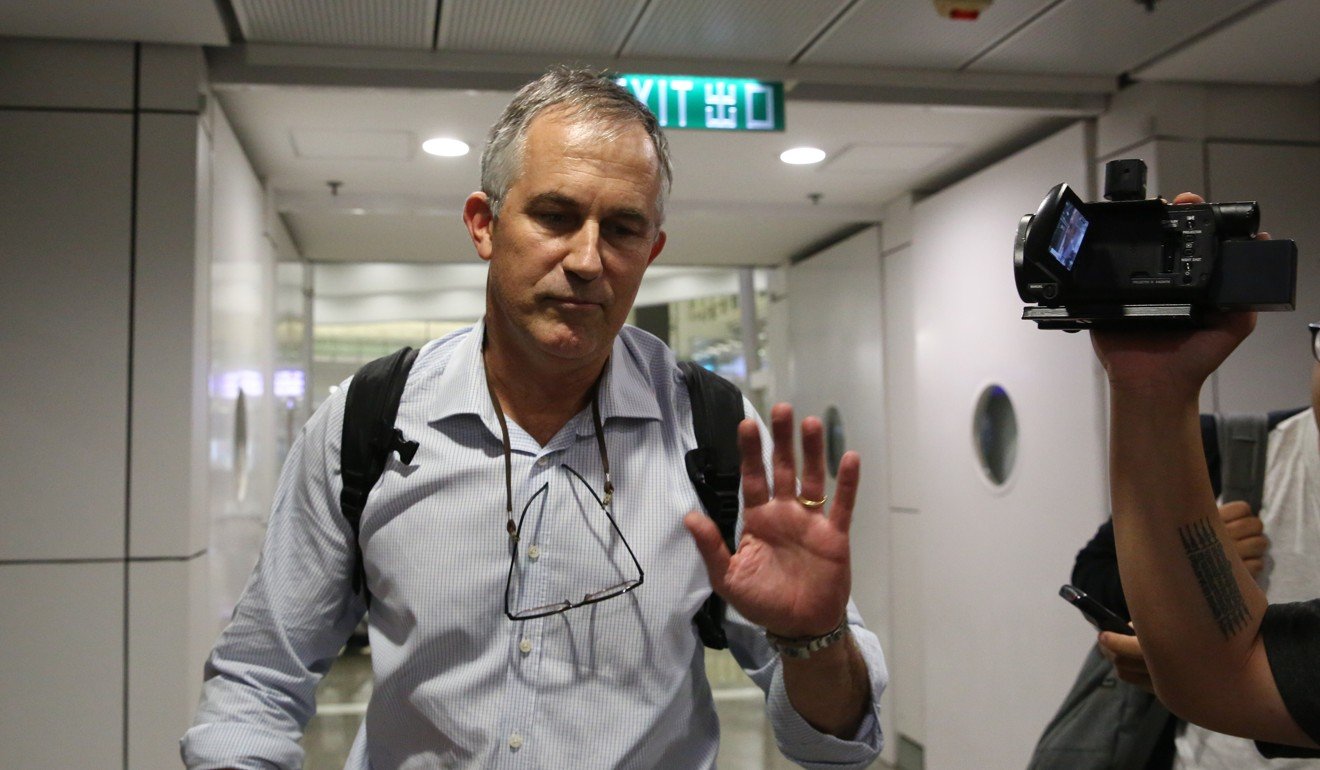
Meanwhile, Mallet thanked those who signed two online petitions urging local officials to give a full explanation about his case.
“I am very grateful to all those who have signed this petition, particularly those from Hong Kong, which has been home to our family for a total of more than seven years,” Mallet wrote on a social media page.
A dozen representatives from six journalists’ groups, including the Hong Kong Journalists Association, held a rally outside government headquarters in Admiralty on Tuesday. They urged the authorities to give a full explanation, as they submitted a petition with 15,000 signatures. As of 7pm on Tuesday, more than 22,000 people had signed the petitions.
Additional reporting by Alvin Lum